The Well-Tempered Ear
Meet the Met’s’Mighty Mouse’ — Yannick Nézet-Ségiun
Leave a Comment
PLEASE HELP THE EAR. IF YOU LIKE A CERTAIN BLOG POST, SPREAD THE WORD. FORWARD A LINK TO IT OR, SHARE IT or TAG IT (not just “Like” it) ON FACEBOOK. Performers can use the extra exposure to draw potential audience members to an event. And you might even attract new readers and subscribers to the blog.
By Jacob Stockinger
You might think you already know the famous, high-profile musician and conductor Yannick Nézet-Séguin (below).
The Ear certainly did.
But then I saw the profile and comprehensive interview with the 48-year-old on CBS’ “60 Minutes” last Sunday. And I learned many new things, including how enjoyable and humorous the native French-Canadian can be as well as how he plans to breathe new life and bring new audience into the Met.
I learned how extremely busy he is being the music director of three major artistic organizations: the Metropolitan Opera in New York; the Philadelphia Orchestra; and the Metropolitan Orchestra of Montreal. In addition, he is a prolific recording artist.
I also learned much about his personal life (below, on vacation) and his professional career. You meet his parents and his longtime violist husband.
Not for nothing has the renowned mezzo-soprano Joyce DiDonato affectionately dubbed this openly gay man with the nickname of the cartoon character Mighty Mouse (below) because of his small size but muscular physique, his cheerful and expressive face, and his ambitious rescue mission as the third music director of the Metropolitan Opera in New York City.
Here is a link to the wide-ranging and candid interview, both amusingly serious and seriously amusing, which you can read it or watch and listen to it:
What do you think of Yannick Nézet-Séguin and his plans to revitalize the Metropolitan Opera with contemporary works and younger audiences?
What did you think of the “60 Minutes” interview?
The Ear wants to hear.
Tags: #BlogInterview, #BlogPost, #BlogPosting, #FacebookPost, #FacebookPosting, 60 Minutes, affection, affectionate, ambitious, amusing, Arts, audience, blog, boyfriend, Canada, candid, cartoon, CBS, CBS-TV, Chamber music, character, cheerful, choral music, Classical music, composer, Concert, conductor, contemporary, contemporary opera, enjoyable, face, Facebook, famous, French, French-Canadian, gay, husband, Jacob Stockinger, Joyce Di Donato, Joyce DiDonato, learn, LGBT, LGBTQ, life, link, listen, longtime, Metropolitan Opera, Metropolitan Orchestra of Montreal, Mezzo-soprano, Mighty Mouse, mission, Montreal, Mozart, muscular, Music, Music director, native, new works, New York City, openly gay, opera, Orchestra, parents, partner, Pennsylvania, persionakl, Philadelphia, Philadelphia Orchestra, physique, Piano, plans, professional, profile, read, recording, rescue, revitalize, serious, share, singer, size, small, Sunday, symphony, tag, technology, Television, the Met, thing, things, TV, United States, US, vacation, Viola, violist, vocal music, watch, Yannick, Yannick Nézet-Séguin, young
Here are the Top 10 online concerts to stream in March, according to critics for the New York Times
Leave a Comment
PLEASE HELP THE EAR. IF YOU LIKE A CERTAIN BLOG POST, SPREAD THE WORD. FORWARD A LINK TO IT OR, SHARE IT or TAG IT (not just “Like” it) ON FACEBOOK. Performers can use the extra exposure to draw potential audience members to an event. And you might even attract new readers and subscribers to the blog.
ALERT: The online live-streamed concert by the UW-Madison’s Pro Arte Quartet — scheduled for this Friday night, March 5 — in the all-Beethoven cycle of string quartets has been canceled and postponed until next year. The Friday, April 9 installment of the Beethoven cycle will be held as Installment 7 instead of 8.
By Jacob Stockinger
Classical music critics of The New York Times have once again picked their Top 10 online concerts for the month of March.
The Ear has found such lists helpful for watching and hearing, but also informative to read, if you don’t actually “attend” the concert.
If you have read these lists before, you will see that this one is typical.
It offers lots of links with background about the works and performers; concert times (Eastern); and how long the online version is accessible.
Many of the performers will not be familiar to you but others – such as pianist Mitsuko Uchida (below, in a photo by Hiroyuki Ito for the Times), who will perform an all-Schubert recital, will be very familiar.
But the critics once again emphasize new music and even several world premieres – including one by Richard Danielpour — and a path-breaking but only recently recorded live performance of the 1920 opera “Die Tote Stadt” (The Dead City) by long-neglected composer Erich Wolfgang Korngold (below), who is best known for his Hollywood movie scores but who also wrote compelling classical concert hall music. (In the YouTube video at the bottom, you can hear soprano Renée Fleming sing “Marietta’s Song.’)
But some works that are more familiar by more standard composers – including Mozart, Beethoven, Schubert, Schumann, Ravel and Copland – are also included.
The Times critics have also successfully tried to shine a spotlight on Black composers and Black performers, such as the clarinetist and music educator Anthony McGill (below top), who will perform a clarinet quintet by composer Samuel Coleridge-Taylor (below) and music in the setting of the Metropolitan Museum of Art.
No purists, the critics also suggest famous oboe and clarinet works in transcriptions for the saxophone by composer-saxophonist Steven Banks (below).
Also featured is a mixed media performance of words and music coordinated by the award-winning Nigerian-American novelist, essayist and photographer Teju Cole (below), whose writings and photos are irresistible to The Ear.
Here is a link to the story in the Times: https://www.nytimes.com/2021/02/25/arts/music/classical-music-streaming-concerts.html
Are there other online concerts in March – local, regional, national or international – that you recommend in addition to the events listed in the Times?
The Ear wants to hear.
Tags: #AaronCopland, #AdolphusHailstork, #AmyBeach, #AnthonyMcGill, #AppalachianSpring, #AsianComposer, #BerlinGermany, #BlackComposer, #BlackCulture, #BlackMusic, #Blackperformer, #BlackTraditions, #BlogPost, #BlogPosting, #BluesMusic, #CarolineShaw, #ChamberMusic, #ClaraSchumann, #ClarinetConcerto, #ClarinetQuintet, #ClevelandOrchestra, #ConcertHall, #ConcertTime, #CoronavirusPandemic, #COVID-19, #DavidFung, #DavidHydePierce, #DeutscheOper, #ErichWolfgangKorngold, #FacebookPost, #FacebookPosting, #FemaleComposer, #FlorencePrice, #FranzSchubert, #GreatBritain, #GreatMigration, #HenryGorecki, #HildgardvonBingen, #JacobStockinger, #JenniferKoh, #JohnDowland, #KurtWeill, #LiveMusic, #LondonEngland, #LouisianaPhilharmonicOrchestra, #LouisvilleOrchestra, #LudwigVanBeethoven, #MargaretBonds, #MauriceRavel, #MeadWitterSchoolofMusic, #MetropolitanMuseumofArt, #MitsukoUchida, #MixedMedia, #MusicCritic, #NegroSpiritual, #NewMusic, #NewYorkPhilharmonic, #NewYorkTimes, #OboeQuartet, #OnlineConcert, #OperaMusic, #OperaPhiladelphia, #OrchestralMusic, #OrchestraofSt.Luke's, #PhiladelphiaPennsylvania, #PhilipGuston, #PianoConcerto, #PianoSonata, #PolishComposer, #PrincipalClarinet, #ProArteQuartet, #RecordedMusic, #RenéeFleming, #RiccardoChailly, #RichardDanielpour, #RobertSchumann, #SamuelColeridge-Taylor, #SarahCahill, #SopranoSinger, #StevenBanks, #StringQuartet, #TejuCole, #The CoronationofPoppea, #TheBlues, #TheDeadCity, #TheEar, #TheUW, #Top10, #UniversityofWisconsin-Madison, #UnsukChin, #ViolinConcerto, #VirtualConcert, #VocalMusic, #WigmoreHall, #WilliamBolcom, #WorldPremiere, #YouTubeChannel, #YouTubevideo, Aaron Copland, Actor, Adolphus Hailstork, Africa, Americana, Amy Beach, Anthony McGill, Appalachian Spring, Art, Arts, Asi, asian, Asian composer, audience, award, background, bakcground, beach, Beethoven, Berlin, black composer, Black culture, black music, Black performer, Black traditions, blog, blues, Bolcom, bovel, cancel, Caroline Shaw, cellist, Cello, Chamber music, Clara Schumann, clarinet, clarinet concerto, Clarinet Quintet, clarinetist, Classical music, Cleveland, Cleveland Orchestra, Cole, composer, Concert, concert hall, concert time, concerto, conductor, Copland, coronavirus, coronavirus pandemic, critic, cycle, Danielpour, David Fung, David Hyde Pierce, Deutsche Oper, Deutsche Opera, Early music, England, Erich Wolfgang Korngold, essay, essayist, event, Facebook, Facebook page, familiar, female, Florence Price, forward, Franz Schubert, Fung, Germany, Gorecki, Great Britain, Great Migration, Hailstork, hear, helful, Henryk Gorecki, Hildegard von Bingen, impromptu, international, Jacob Stockinger, Jazz, jazzy, Jennifer Koh, John Dowland, Kaija Saariaho, Koh, Korngold, Kurt Weill, like, link, list, live music, local, London, Louisiana Philharmonic Orchestra, Louisville Orchestra, Ludwig van Beethoven, Madison, march, Margaret Bonds, Maurice Ravel, McGill, Mead Witter School of Music, media, Metropolitan Museum of Art, Mitsuko Uchida, mixed media, Mozart, Museum, Music, music critic, national, neglect, Negro spirituals, New Music, New York Philharmonic, New York Times, Nigeria, Nigerian, novelist, Oboe, Oboe Quartet, oboist, online, opera, Opera Philadelphia, Orchestra, Orchestra of St. Luke's, orchestral music, other, pandemic, PAQ, Pennsylvania, performer, Philip Guston, photographer, Pianist, Piano, Piano concerto, Piano sonata, players, Polish composer, post, posting, postpone, price, Principal Clarinet, Pro Arte Quartet, purist, quintet, Ravel, read, recital, recommendation, recorded music, regional, Renée Fleming, Riccardo Chailly, Richard Danielpour, Robert Schumann, Samuel Coleridge-Taylor, Sarah Cahill, Saxophone, Schubert, Schumann, setting, share, Shaw, Shine, Singing, soloist, Sonata, song, soprano, spirituals, spotlight, Spring, Steven Banks, stream, String quartet, symphony, tag, Teju Cole, The blues, The Dead City, The Ear, time, Top 10, transcription, typical, Uchida, UK, United Kingdom, United States, University of Wisconsin-Madison School of Music, University of Wisconsin–Madison, Unsuk Chin, UW, UW-Madison, value, version accessible, Viola, Violin, Violin concerto, violinist, violist, virtual, vocal music, watch, Weill, Wigmore Hall, WILLIAM BOLCOM, Wisconsin, Wolfgang Amadeus Mozart, women, works, world premiere, Writer, writing, YouTube, YouTube video
Here are the classical music nominations for the 63rd annual Grammy Awards in 2021
3 Comments
PLEASE HELP THE EAR. IF YOU LIKE A CERTAIN BLOG POST, SPREAD THE WORD. FORWARD A LINK TO IT OR, SHARE IT or TAG IT (not just “Like” it) ON FACEBOOK. Performers can use the extra exposure to draw potential audience members to an event. And you might even attract new readers and subscribers to the blog.
By Jacob Stockinger
It’s time again for the annual Grammy Awards (below).
Although determined by the recording industry and often considered promotional marketing, they might be more helpful given the peculiar circumstances of the past year.
After all, the coronavirus pandemic has changed our listening habits.
Perhaps you now listen mostly via computer to virtual online concerts and performances that are streamed.
Perhaps you listen to Compact Discs using home stereo systems.
Perhaps you subscribe to a streaming service such as Apple Music, Amazon Music, Spotify and others.
However you listen to music, you might find the following list useful, especially as it comes at the beginning of the holiday shopping and gift-giving season.
You might also find the nominations for the 63rd annual Grammy Awards informative about individual musicians and musical groups in your area.
They can help you judge how many or how few contemporary composers and new works get performed.
Performers provide other examples. You might find it interesting, for example, that soprano Sarah Brailey (below) has been nominated for her role in the solo vocal work “The Prison” by Ethel Smyth. Brailey is a graduate student at the University of Wisconsin-Madison Mead Witter School of Music and a co-founder and performer of the free monthly Just Bach concerts.
Pianist Shai Wosner (below, in a photo by Marco Borggreve), who played late Schubert sonatas at the Salon Piano Series at Farley’s House of Pianos, is included in a list of producer awards for his recording of those sonatas.
The Milwaukee Symphony Orchestra and Florentine Opera have been nominated for a recording of Carlisle Floyd’s opera “Prince of Players.”
Conductor Julian Wachner (below top), violinist Augustin Hadelich (below middle) and pianist Jonathan Biss (below bottom) have all performed with the Madison Symphony Orchestra, some more than once.
Soprano Laquita Mitchell (below) — who has sung with the Madison Opera — has been nominated for her performance in the choral work “Sanctuary Road” by Paul Moravec.
Cellist Matt Haimovitz (below top) and composer Luna Pearl Woolf (below bottom) have been nominated for the latter’s “Fire and Flood.” Both have appeared with UW-Madison orchestral and choral groups.
If you notice more local connections, please leave word in the Comment section.
The winners will be announced on CBS Television the evening of Sunday, Jan. 31, 2021.
73. Best Engineered Album, Classical
An Engineer’s Award. (Artist names appear in parentheses.)
· DANIELPOUR: THE PASSION OF YESHUA
Bernd Gottinger, engineer (JoAnn Falletta, James K. Bass, Adam Luebke, UCLA Chamber Singers, Buffalo Philharmonic Orchestra & Buffalo Philharmonic Chorus)
· GERSHWIN: PORGY AND BESS
David Frost and John Kerswell, engineers; Silas Brown, mastering engineer (David Robertson, Eric Owens, Angel Blue, Metropolitan Opera Orchestra & Chorus)
· HYNES: FIELDS
Kyle Pyke, engineer; Jesse Lewis and Kyle Pyke, mastering engineers (Devonté Hynes & Third Coast Percussion)
· IVES: COMPLETE SYMPHONIES (below)
Alexander Lipay and Dmitriy Lipay, engineers; Alexander Lipay and Dmitriy Lipay, mastering engineers (Gustavo Dudamel and Los Angeles Philharmonic)
· SHOSTAKOVICH: SYMPHONY NO. 13, ‘BABI YAR’
David Frost and Charlie Post, engineers; Silas Brown, mastering engineer (Riccardo Muti and Chicago Symphony Orchestra)
· 
74. Producer Of The Year, Classical
A Producer’s Award. (Artist names appear in parentheses.)
· BLANTON ALSPAUGH
• Aspects Of America – Pulitzer Edition (Carlos Kalmar and Oregon Symphony)
• Blessed Art Thou Among Women (Peter Jermihov, Katya Lukianov and PaTRAM Institute Singers)
• Dvorak: Symphony No. 9; Copland: Billy The Kid (Gianandrea Noseda and National Symphony Orchestra)
• Glass: The Fall Of The House Of Usher (Joseph Li, Nicholas Nestorak, Madison Leonard, Jonas Hacker, Ben Edquist, Matthew Adam Fleisher and Wolf Trap Opera)
• Kahane: Emergency Shelter Intake Form (Alicia Hall Moran, Gabriel Kahane, Carlos Kalmar and Oregon Symphony)
• Kastalsky: Requiem (Leonard Slatkin, Steven Fox, Benedict Sheehan, Charles Bruffy, Cathedral Choral Society, The Clarion Choir, The Saint Tikhon Choir, Kansas City Chorale and Orchestra Of St. Luke’s)
• Massenet: Thaïs (Andrew Davis, Joshua Hopkins, Andrew Staples, Erin Wall, Toronto Mendelssohn Choir and Toronto Symphony Orchestra)
• Smyth: The Prison (Sarah Brailey, Dashon Burton, James Blachly and Experiential Orchestra)
• Woolf, L.P.: Fire And Flood (Julian Wachner, Matt Haimovitz and Choir Of Trinity Wall Street)
· DAVID FROST (below)
• Beethoven: Piano Sonatas, Vol. 9 (Jonathan Biss)
• Gershwin: Porgy And Bess (David Robertson, Eric Owens, Angel Blue, Metropolitan Opera Orchestra and Chorus)
• Gluck: Orphée ed Eurydice (Harry Bicket, Dmitry Korchak, Andriana Chuchman, Lauren Snouffer, Lyric Opera Of Chicago Orchestra and Chorus)
• Holst: The Planets; The Perfect Fool (Michael Stern and Kansas City Symphony)
• Muhly: Marnie (Robert Spano, Isabel Leonard, Christopher Maltman, Denyce Graves, Iestyn Davies, Janis Kelly, Metropolitan Opera Orchestra and Chorus)
• Schubert: Piano Sonatas, D. 845, D. 894, D. 958, D. 960 (Shai Wosner)
• Shostakovich: Symphony No. 13, ‘Babi Yar’ (Riccardo Muti, Alexey Tikhomirov, Chicago Symphony Orchestra and Chorus)
· JESSE LEWIS
• Gunn: The Ascendant (Roomful Of Teeth)
• Harrison, M.: Just Constellations (Roomful Of Teeth)
• Her Own Wings (Willamette Valley Chamber Music Festival)
• Hynes: Fields (Devonté Hynes and Third Coast Percussion)
• Lang, D.: Love Fail (Beth Willer and Lorelei Ensemble)
• Mazzoli: Proving Up (Christopher Rountree, Opera Omaha and International Contemporary Ensemble)
• Sharlat: Spare The Rod! (NOW Ensemble)
• Soul House (Hub New Music)
• Wherein Lies The Good (The Westerlies)
· DMITRIY LIPAY
• Adams, J.: Must The Devil Have All The Good Tunes? (Yuja Wang, Gustavo Dudamel and Los Angeles Philharmonic)
• Cipullo: The Parting (Alastair Willis, Laura Strickling, Catherine Cook, Michael Mayes and Music Of Remembrance)
• Ives: Complete Symphonies (Gustavo Dudamel & Los Angeles Philharmonic)
• LA Phil 100 – The Los Angeles Philharmonic Centennial Birthday Gala (Gustavo Dudamel and Los Angeles Philharmonic)
• Langgaard: Prelude To Antichrist; Strauss: An Alpine Symphony (Thomas Dausgaard and Seattle Symphony Orchestra)
• Nielsen: Symphony No. 1 and Symphony No. 2, ‘The Four Temperaments’ (Thomas Dausgaard and Seattle Symphony)
· ELAINE MARTONE
• Bound For The Promised Land (Robert M. Franklin, Steven Darsey, Jessye Norman and Taylor Branch)
• Dawn (Shachar Israel)
• Gandolfi, Prior and Oliverio: Orchestral Works (Robert Spano and Atlanta Symphony Orchestra)
• Singing In The Dead Of Night (Eighth Blackbird)
• Whitacre: The Sacred Veil (Eric Whitacre, Grant Gershon and Los Angeles Master Chorale)
75. Best Orchestral Performance
Award to the Conductor and to the Orchestra.
· ASPECTS OF AMERICA – PULITZER EDITION (below)
Carlos Kalmar, conductor (Oregon Symphony)
· CONCURRENCE
Daniel Bjarnason, conductor (Iceland Symphony Orchestra)
· COPLAND: SYMPHONY NO. 3
Michael Tilson Thomas, conductor (San Francisco Symphony)
· IVES: COMPLETE SYMPHONIES
Gustavo Dudamel, conductor (Los Angeles Philharmonic)
· LUTOSLAWSKI: SYMPHONIES NOS. 2 and 3
Hannu Lintu, conductor (Finnish Radio Symphony Orchestra)
76. Best Opera Recording
Award to the Conductor, Album Producer(s) and Principal Soloists.
· DELLO JOIO: THE TRIAL AT ROUEN
Gil Rose, conductor; Heather Buck and Stephen Powell; Gil Rose, producer (Boston Modern Orchestra Project; Odyssey Opera Chorus)
· FLOYD, C.: PRINCE OF PLAYERS
William Boggs, conductor; Keith Phares and Kate Royal; Blanton Alspaugh, producer (Milwaukee Symphony Orchestra; Florentine Opera Chorus)
· GERSHWIN: PORGY AND BESS (below)
David Robertson, conductor; Angel Blue and Eric Owens; David Frost, producer (The Metropolitan Opera Orchestra; The Metropolitan Opera Chorus)
· HANDEL: AGRIPPINA
Maxim Emelyanychev, conductor; Joyce DiDonato; Daniel Zalay, producer (Il Pomo D’Oro)
· ZEMLINSKY: DER ZWERG
Donald Runnicles, conductor; David Butt Philip and Elena Tsallagova; Peter Ghirardini and Erwin Sturzer, producers (Orchestra of The Deutsche Oper Berlin; Chorus of The Deutsche Oper Berlin)
77. Best Choral Performance
Award to the Conductor, and to the Choral Director and/or Chorus Master where applicable and to the Choral Organization/Ensemble.
· CARTHAGE
Donald Nally, conductor (The Crossing)
· DANIELPOUR: THE PASSION OF YESHUA (below)
JoAnn Falletta, conductor; James K. Bass and Adam Luebke, chorus masters (James K. Bass, J’Nai Bridges, Timothy Fallon, Kenneth Overton, Hila Plitmann and Matthew Worth; Buffalo Philharmonic Orchestra; Buffalo Philharmonic Chorus and UCLA Chamber Singers)
· KASTALSKY: REQUIEM
Leonard Slatkin, conductor; Charles Bruffy, Steven Fox and Benedict Sheehan, chorus masters (Joseph Charles Beutel and Anna Dennis; Orchestra Of St. Luke’s; Cathedral Choral Society, The Clarion Choir, Kansas City Chorale and The Saint Tikhon Choir)
· MORAVEC: SANCTUARY ROAD
Kent Tritle, conductor (Joshua Blue, Raehann Bryce-Davis, Dashon Burton, Malcolm J. Merriweather and Laquita Mitchell; Oratorio Society of New York Orchestra; Oratorio Society of New York Chorus)
· ONCE UPON A TIME
Matthew Guard, conductor (Sarah Walker; Skylark Vocal Ensemble)
78. Best Chamber Music/Small Ensemble Performance
For new recordings of works with chamber or small ensemble (24 or fewer members, not including the conductor). One Award to the ensemble and one Award to the conductor, if applicable.
· CONTEMPORARY VOICES
Pacifica Quartet
· HEALING MODES
Brooklyn Rider
· HEARNE, T.: PLACE
Ted Hearne, Steven Bradshaw, Sophia Byrd, Josephine Lee, Isaiah Robinson, Sol Ruiz, Ayanna Woods and Place Orchestra
· HYNES: FIELDS
Devonté Hynes and Third Coast Percussion
· THE SCHUMANN QUARTETS
Dover Quartet
79. Best Classical Instrumental Solo
Award to the Instrumental Soloist(s) and to the Conductor when applicable.
· ADÈS: CONCERTO FOR PIANO AND ORCHESTRA
Kirill Gerstein; Thomas Adès, conductor (Boston Symphony Orchestra)
· BEETHOVEN: COMPLETE PIANO SONATAS (below)
Igor Levit
· BOHEMIAN TALES
Augustin Hadelich; Jakub Hrusa, conductor (Charles Owen; Symphonieorchester Des Bayerischen Rundfunks)
· DESTINATION RACHMANINOV – ARRIVAL
Daniil Trifonov; Yannick Nézet-Séguin, conductor (The Philadelphia Orchestra)
· THEOFANIDIS: CONCERTO FOR VIOLA AND CHAMBER ORCHESTRA
Richard O’Neill; David Alan Miller, conductor (Albany Symphony)
80. Best Classical Solo Vocal Album
Award to: Vocalist(s), Collaborative Artist(s) (Ex: pianists, conductors, chamber groups) Producer(s), Recording Engineers/Mixers with 51% or more playing time of new material.
· AMERICAN COMPOSERS AT PLAY – WILLIAM BOLCOM, RICKY IAN GORDON, LORI LAITMAN, JOHN MUSTO
Stephen Powell (Attacca Quartet, William Bolcom, Ricky Ian Gordon, Lori Laitman, John Musto, Charles Neidich and Jason Vieaux)
· CLAIRIÈRES – SONGS BY LILI and NADIA BOULANGER
Nicholas Phan; Myra Huang, accompanist
· FARINELLI
Cecilia Bartoli; Giovanni Antonini, conductor (Il Giardino Armonico)
· A LAD’S LOVE
Brian Giebler; Steven McGhee, accompanist (Katie Hyun, Michael Katz, Jessica Meyer, Reginald Mobley and Ben Russell)
· SMYTH: THE PRISON
Sarah Brailey and Dashon Burton; James Blachly, conductor (Experiential Chorus; Experiential Orchestra)
81. Best Classical Compendium
Award to the Artist(s) and to the Album Producer(s) and Engineer(s) of over 51% playing time of the album, if other than the artist.
· ADÈS CONDUCTS ADÈS
Mark Stone and Christianne Stotijn; Thomas Adès, conductor; Nick Squire, producer
· SAARIAHO: GRAAL THEATER; CIRCLE MAP; NEIGES; VERS TOI QUI ES SI LOIN
Clément Mao-Takacs, conductor; Hans Kipfer, producer
· SEREBRIER: SYMPHONIC BACH VARIATIONS; LAMENTS AND HALLELUJAHS; FLUTE CONCERTO
José Serebrier, conductor; Jens Braun, producer
· THOMAS, M.T.: FROM THE DIARY OF ANNE FRANK and MEDITATIONS ON RILKE
Isabel Leonard; Michael Tilson Thomas, conductor; Jack Vad, producer
· WOOLF, L.P.: FIRE AND FLOOD
Matt Haimovitz; Julian Wachner, conductor; Blanton Alspaugh, producer
82. Best Contemporary Classical Composition
A Composer’s Award. (For a contemporary classical composition composed within the last 25 years, and released for the first time during the Eligibility Year.) Award to the librettist, if applicable.
· ADÈS: CONCERTO FOR PIANO AND ORCHESTRA
Thomas Adès, composer (Kirill Gerstein, Thomas Adès and Boston Symphony Orchestra)
· DANIELPOUR: THE PASSION OF YESHUA
Richard Danielpour, composer (JoAnn Falletta, James K. Bass, Adam Luebke, UCLA Chamber Singers, Buffalo Philharmonic Orchestra & Buffalo Philharmonic Chorus)
· FLOYD, C.: PRINCE OF PLAYERS (below)
Carlisle Floyd, composer (William Boggs, Kate Royal, Keith Phares, Florentine Opera Chorus and Milwaukee Symphony Orchestra)
· HEARNE, T.: PLACE
Ted Hearne, composer (Ted Hearne, Steven Bradshaw, Sophia Byrd, Josephine Lee, Isaiah Robinson, Sol Ruiz, Ayanna Woods and Place Orchestra)
· ROUSE: SYMPHONY NO. 5
Christopher Rouse, composer (Giancarlo Guerrero & Nashville Symphony)
If you want to see many more nominations, including those for pop, rock, folk, hip hop, jazz and videos, go to: https://www.grammy.com/grammys/news/2021-grammys-complete-nominees-list
Tags: #AaronCopland, #AlexanderZemlinsky, #AmazonMusic, #AmsterdamTheNetherlands, #AnneFrank, #AntoninDvorak, #AppleMusic, #AspectsofAmerica, #AtlantaSymphonyOrchestra, #AugustinHadelich, #BabiYar, #BaroqueMusic, #BaroqueOpera, #Bestof, #BestPerformance, #BlantonAlspaugh, #BlogPost, #BlogPosting, #BostonSymphony, #CarlisleFloyd, #CarlNielsen, #CeciliaBartoli, #CedilleRecords, #ChamberMusic, #ChamberOrchestra, #CharlesIves, #ChicagoSymhonyOrchetsra, #ChoralMusic, #ChristmasGifts, #ChristopherRouse, #ChristopherTheofanidis, #ChristophWillibaldGluck, #CityofMadison, #ClassicalMusician, #CompactDisc, #CompleteCycle, #ConcertPianist, #ContemporaryVoices, #DaniilTrifonov, #DavidFrost, #DavidRobertson, #DeccaRecords, #DeutscheGrammophon, #DeutscheOper, #DmitriShostakovich, #DmitriyLipay, #DoverQuartet, #EighthBlackbird, #ElaineMartone, #EricOwens, #EricWhitacre, #EthelSmyth, #FacebookPost, #FacebookPosting, #Farley'sHouseofPianos, #FireandFlood, #FlorentineOpera, #FolkMusic, #FranzSchubert, #GeorgeFridericHandel, #GospelMusic, #GraduateStudent, #GrammyAwards, #GrammyNominations, #GuestArtist, #GustavHolst, #GustavoDudamel, #Hip-hopmusic, #HipHop, #HolidayGiftGuide, #HolidayShopping, #IcelandSymphonyOrchestra, #IgorLevit, #InstrumentalMusic, #JacobStockinger, #JesseLewis, #JoAnnFalletta, #JohnAdams, #JonathanBiss, #JoyceDiDonato, #JulesMassenet, #JulianWachner, #JustBach, #KaijaSaariaho, #KirillGerstein, #LaquitaMitchell, #LeonardSlatkin, #LiliBoulanger, #LiveStreaming, #LosAngelesCalifornia, #LosAngelesPhilharmonic, #LudwigVanBeethoven, #LunaPearlWoolf, #MadisonOpera, #MadisonSymphonyOrchestra, #MattHaimovitz, #MeadWitterSchoolofMusic, #MetropolitanOpera, #Mezzo-sopranoSinger, #MichaelTilsonThomas, #MilwaukeeSymphonyOrchestra, #MilwaukeeWisconsin, #MissyMazzoli, #ModernMusic, #NadiaBoulanger, #NashvilleSymphony, #NashvilleTennessee, #NewMusic, #NicoMuhly, #NormanDelloJoio, #OnlineConcert, #OrchestraofSt.Luke's, #PacificaQuartet, #PaulMoravec, #PhiladelphiaOrchestra, #PhiladelphiaPennsylvania, #PhilipGlass, #PianoConcerto, #PianoMusic, #PianoSonata, #PopMusic, #PorgyandBess, #PrinceofPlayers, #PulitzerPrize, #RainerMariaRilke, #RecordedMusic, #RhythmandBlues, #RiccardoMuti, #RichardDanielpour, #RichardStrauss, #RobertSchumann, #RobertSpano, #RockMusic, #SalonPIanoSeries, #SanctuaryRoad, #SanFranciscoSymphony, #SarahBrailey, #SeattleSymphony, #SergeiRachmaninoff, #SergeiRachmaninov, #ShaiWosner, #SonyClassical, #SopranoSinger, #SoundEngineer, #StringQuartet, #TedHearne, #TheEar, #TheMet, #ThePassionofYeshua, #ThePlanets, #ThePrison, #TheUW, #ThomasAdès, #TorontoCanada, #TorontoSymphonyOrchestra, #UniversalRecords, #UniversityofWisconsin-Madison, #ViolinMusic, #VirtualConcert, #VirtuosoViolinist, #VocalMusic, #WilliamBolcom, #WitoldLutoslawski, #WorldWarII, #YannickNezet-Seguin, #YouTubevideo, #YujaWang, Aaron Copland, Adams, Adès, African-Ameican, Agrippina, Album, Alexander Zemlinsky, Amazon Music, America, Amsterdam, Anne Frank, annual, Antichrist, Antonín Dvořák, Apple Music, Arts, Asia, Aspects of America, Atlanta Symphony Orchestra, Augustin Hadelich, Babi Yar, Baroque, Baroque music, Beethoven, Berlin, best, black, Blanton Alspaugh, blog, blues, Bolcom, Boston Symphony, Buffalo, California, Carl Nielsen, Carlisle Floyd, Carthage, CBS, CBS-TV, Cecila Bartoli, Cedille, Cedille Records, cellist, Cello, Chamber music, chamber orchestra, Chanukah, Charles Ives, Chicago, Chicago Symphony Orchestra, China, Chinese, choral, choral music, chorus, Christmas, Christoph Willibald Gluck, Christopher Rouse, Christopher Theofanidis, cirumstances, Classical music, classicalmusic, comment, Compact Disc, complete, composer, computer, Concert, concerto, conductor, connection, Contemporary Voices, Copland, Daniil Trifonov, David Frost, David Robertson, dead, Decca, Della Joio, Deutsche Grammophon, Deutsche Opera, DG, Dmitri Shostakovich, Dmitriy Lipay, Dover Quartet, Dudamel, Dvorak, Early music, eighth blackbird, Elaine Martone, engineer, ensemble, ERIC OWENS, Eric Whitacre, Ethel Smyth, example, Facebook, Facebook post, Facebook posting, Farinelli, Farley's House of Pianos, Fire and Flood, Florentine Opera, folk, Folk music, forward, founder, France, Franz Schubert, free, George Frideric Handel, George Gershwin, georgegershwin, German, Germany, Gershwin, gift guide, Glass, Gluck, gospel, graduate student, Grammy, Grammy Award, guest artist, Gustav Holst, Gustavo Dudamel, Handel, Hanukkah, Hearne, Hip hop music, hip-hop, Hitler, Holiday, holiday gift guide, Holst, Home, Hynes, Iceland, Igor Levit, instrumental, Ives, Jacob Stockinger, January, Jazz, Jesse Lewis, JoAnn Falletta, John Adams, Jonathan Biss, Joyce DiDonato, Jules Massenet, Julian Wachner, Just Bach, Kahane, Kaija Saariaho, Kastalsky, Kirill Gerstein, Kwanzaa, Laquita Mitchell, Leonard Slatkin, like, Lili Boulanger, link, list, livestream, local, Los Angeles, Los Angeles Philharmonic, Ludwig van Beethoven, Luna Pearl Woolf, Lutoslawski, Madison, Madison Opera, Madison Symphony Orchestra, marketing, Marnie, Massenet, Matt Haimovitz, Mazzoli, Mead Witter School of Music, Meditation, Metropolitan Opera, Mezzo-soprano, Michael Tilson Thomas, Milwaukee, Milwaukee Symphony Orchestra, Missy Mazzoli, modern, monthly, Muhly, Music, Nadia Boulanger, Nashville Symphony, Nazi, New Music, New York, New York City, Nico Muhly, Nielsen, night, nominations, Norman Dello Joio, online, opera, Orchestra, Orchestra of St. Luke's, orchestral, Pacifica Quartet, Paul Moravec, peculiar, Pennsylvania, percussion, performance, performer, Philadelphia, Philadelphia Orchestra, Philip Glass, Pianist, Piano, Piano concerto, piece, player, pop, Porgy and Bess, post, posting, Prince of Players, prison, producer, promotional, Pulitzer Prize, R&B, Rachmaninoff, Rachmaninov, Rainer Maria Rilke, recorded music, records, repertoire, repertory, Requiem, Rhythm and Blues, Riccardo Muti, Richard Danielpour, Richard Strauss, Rilke, Robert Schumann, Robert Spano, Rock, rock music, role, Rouen, Rouse, Saariaho, Salon Piano Series, San Francisco, San Francisco Symphony, Sanctuary Raod, Sarah Brailey, Schubert, Schumann, Seattle, Seattle Symphony, Sergei Rachmaninoff, Sergei Rachmaninov, service, Shai, Shai Wosner, share, Shopping, Shostakovich, singer, Singing, solo, soloist, Sonata, song, SONY, Sony Classical, soprano, Spotify, stereo, Strauss, stream, String quartet, sung, symphony, system, tag, Ted Hearne, Television, The Ear, the Met, The Passion of Yeshua, The Planets, Theofanidis, Thomas Ades, time, Toronto, Toronto Symphony Orchestra, trial, Trofonov, TV, United States, universal, Universal Records, University of Wisconsin-Madison School of Music, University of Wisconsin–Madison, useful, UW, UW-Madison, video, Viola, Violin, violin music, violinist, violist, virtual, vocal music, voice, Wang, WILLIAM BOLCOM, winner, Wisconsin, Witold Lutoslawski, work, World War II, Yannick Nézet-Séguin, Yuja Wang, Zemlinsky
Classical music: Today is Sept. 11, 2020. Here is music to mark the 19th anniversary of the terrorist attacks during the coronavirus pandemic. What would you choose?
2 Comments
PLEASE HELP THE EAR. IF YOU LIKE A CERTAIN BLOG POST, SPREAD THE WORD. FORWARD A LINK TO IT OR, SHARE IT or TAG IT (not just “Like” it) ON FACEBOOK. Performers can use the extra exposure to draw potential audience members to an event. And you might even attract new readers and subscribers to the blog.
CORRECTION: The Virtual Gala fundraiser for the Handel Aria Competition started last night, and will end on Thursday, Oct. 1 – NOT on Oct. 11, as mistakenly stated in yesterday’s blog headline. Here is a link with more information: https://welltempered.wordpress.com/2020/09/10/classical-music-the-worldwide-virtual-and-online-gala-fundraiser-for-the-handel-aria-competition-starts-today-and-runs-through-oct-10-donations-will-be-matched-up-to-2000/
By Jacob Stockinger
Today marks 19 years since the terrorist attacks of Sept. 11, 2001.
For the basic information, here is a Wikipedia summary: https://en.wikipedia.org/wiki/September_11_attacks
There are many ways to remember and honor the dead and the injured in New York City, the Pentagon in Washington, D.C., and Shanksvillle, Pennsylvania. And in past years, The Ear has offered many different ones.
There are the well-known requiems by Mozart, Brahms, Verdi and Faure; passions by Bach; and other works.
There are also the pieces especially composed for the commemoration, including “On the Transmigration of Souls,” a Pulitzer Prize-winning work by John Adams that incorporates police tapes and phone calls, and Steve Reich’s “WTC 9/11.”
But this year there is the coronavirus to deal with and complicate the commemorations.
Here is a story from NBC News about how the official commemorations, both real and virtual, will be affected by the pandemic.
And somehow in such circumstances, it feels like back to basic is a good approach.
So here, in the YouTube video at the bottom, is the most universal piece of mourning that The Ear knows: American composer Samuel Barber’s “Adagio for Strings” as played by Leonard Slatkin conducting the Detroit Symphony Orchestra.
It serves to mark 9/11 but perhaps also the more than 190,000 American deaths so far from the Covid-19 pandemic.
You can find other versions and other pieces on YouTube:
What piece would you want to hear to mark this sad and solemn occasion?
The Ear wants to hear.
Tags: #AdagioforStrings, #Al-Queda, #AmericanComposer, #BacktoBasics, #BlogPost, #BlogPosting, #ChoralMusic, #CoronavirusPandemic, #COVID-19, #DetroitMichigan, #DetroitSymphonyOrchestra, #FacebookPost, #FacebookPosting, #FaureRequiem, #Flight93, #GabrielFaure, #GeorgeFridericHandel, #GiuseppeVerdi, #HandelAriaCompetition, #JacobStockinger, #JohannesBrahms, #JohannSebastianBach, #JohnAdams, #LeonardSlatkin, #NBCNews, #NewYorkCity, #OntheTransmigrationofSouls, #PulitzerPrize, #SamuelBarber, #September11, #ShanksvillePennsylvania, #SteveReich, #TerroristAttack, #TheEar, #ThePentagon, #TwinTowers, #VirtualConcert, #WashingtonD.C., #Wikipediaentry, #WolfgangAmadeusMozart, #WorldTradeCenter, #YouTubevideo, 2001, 9/11, Adagio for Strings, Adams, Al-Qaeda, American, approach, Arts, attack, audience, Bach, back, back to basics, Barber, Baroque, basics, blog, choose, choral music, circumstances, commemorate, complicate, Concert, conductor, coronavirus, correction, D.C., dead, deadly, death, Detroit, Detroit Symphony Orchestra, Facebook, Faure, Flight 93, fundraiser, Gabriel Fauré, gala, George Frederic Handel, Giuseppe Verdi, good, Handel, Handel Aria Competition, hear, honor, information, injured, injuries, Jacob Stockinger, Johann Sebastian Bach, Johannes Brahms, John Adams, last, Leonard Slatkin, like, link, Madison, marks, Michigan, modern, mourning, Mozart, Music, NBC News, New York City, night, occasion, October, official, On the Transmigration of Souls, online, Orchestra, pandemic, Pennsylvania, Pentagon, performer, piece, post, posting, pre-recorded, Pulitzer Prize, real, Reich, remember, Requiem, sad, Samuel Barber, Sept. 11, September 11, Shanksville, share, solemn, start, Steve Reich, summary, symphony, tag, terror, terrorist, The Ear, today, Twin Towers, United States, Verdi, virtual, vocal music, want, Washington, Wikipedia, Wisconsin, Wolfgang Amadeus Mozart, work, World Trade Center, WTC, years, yesterday, YouTube
Classical music: Award-winning prodigy pianist Maxim Lando performs a recital at Farley’s on Sunday afternoon and gives a free public master class on Saturday afternoon
4 Comments
PLEASE HELP THE EAR. IF YOU LIKE A CERTAIN BLOG POST, SPREAD THE WORD. FORWARD A LINK TO IT OR, SHARE IT or TAG IT (not just “Like” it) ON FACEBOOK. Performers can use the extra exposure to draw potential audience members to an event. And you might even attract new readers and subscribers to the blog.
ALERT: At noon this Saturday, Nov. 16, Grace Presents offers a FREE one-hour concert by Lawren Brianna Ware and friends. The concert is at Grace Episcopal Church, 116 West Washington Avenue, downtown on the Capitol Square.
Pianist and composer Ware, the 2017 Grand Prize Winner of the Overture Rising Stars Competition, will perform a program of original, contemporary and classical solo and chamber works entitled “These Are a Few of My Favorite Things.” Featured are works by Aram Khachaturian, Fazil Say, Frederic Chopin, Ludwig van Beethoven, Robert W. Smith, Martin Ellerby and Eric Ewazen.
By Jacob Stockinger
You have to hand it to Farley’s House of Pianos and its Salon Piano Series: They sure know how to book young up-and-coming performers to stay ahead of the curve.
Last season, they presented Kenneth Broberg, a silver medalist at the last Van Cliburn International Piano Competition, before he was accepted into the International Tchaikovsky Competition in Moscow, where he won a bronze medal.
This weekend, the Salon Piano Series presents another timely choice.
This Sunday afternoon, Nov. 17, at 4 p.m., the 17-year-old American piano prodigy Maxim Lando (below, in a photo by Matt Dine) will perform a solo recital at Farley’s showroom, 6522 Seybold Road, on Madison’s far west side near West Towne Mall.
Once again, Lando was booked just before winning a big award and honor.
In addition, at his Salon Piano Series premiere, Lando will have grandparents in the audience, as well as an aunt, uncle and cousins, all from the Madison area.
The son of pianist Pippa Borisy, who grew up in Madison, and clarinetist Vadim Lando, Maxim was raised in Great Neck, Long Island, New York, and has a full-time career as a touring pianist while still finishing high school.
Lando first received national attention in 2017 when he performed with superstar Chinese pianist Lang Lang and jazz great Chick Corea with the Philadelphia Orchestra at Carnegie Hall’s Gala Opening Night.
He won the 2018 Young Concert Artists auditions at the age of 16 and Susan Hall of Berkshire Fine Arts has described him as having “a very old musical soul.”
This fall he received a Gilmore 2020 Young Artist Award, which recognizes the most promising of the new generation of U.S.-based pianists, age 22 or younger. He will perform a series of concerts this season at the Gilmore Keyboard Festival as part of the recognition.
For this Salon Piano Series concert, Lando will perform the same program he performed for recent sold-out performances at the Kennedy Center in Washington, D.C., and Carnegie Hall in New York City.
Lando’s program includes: Nikolai Kapustin’s Concert Etude “Toccatina”; Ludwig van Beethoven’s Sonata No. 30 in E Major, Op. 109 (you can hear the opening movement in the YouTube video at the bottom); Alexander Scriabin’s Prelude in B major and Etude in D-sharp minor; and Franz Liszt’s “Transcendental Etudes.”
Tickets are $45 in advance (full-time students are $10) or $50 at the door (if any remain). Service fees may apply. Student tickets can only be purchased online and are not available the day of the concert.
Tickets can be purchased at: https://www.brownpapertickets.com/event/4275212
An artist’s reception will follow the concert.
For more information, go to: https://salonpianoseries.org/concerts.html
MASTER CLASS
Also, on this Saturday, Nov. 16, at 4 p.m., Maxim Lando will teach a master class at Farley’s House of Pianos, where he will instruct four local students.
This is a free event that the public is invited to observe.
For a complete list of the music by Beethoven, Prokofiev and Clementi to be performed as well as the names of the local students and their teachers, go to: https://salonpianoseries.org/concerts.html
The master classes for the 2019-20 season are supported by the law firm of Boardman and Clark LLP.
This concert is supported in part by a grant from the Wisconsin Arts Board with funds from the State of Wisconsin and the National Endowment for the Arts.
Tags: #AlexanderScriabin, #AramKhachaturian, #BerkshireFineArts, #BlogPost, #BlogPosting, #BoardmanandClark, #BrownPaperTickets, #CapitolSquare, #CarnegieHall, #ChamberMusic, #ChickCorea, #ChineseMusicians, #ChinesePianist, #ClarinetMusic, #ContemporaryComposer, #ContemporaryMusic, #EricEwazen, #FacebookPosting, #Farley'sHouseofPianos, #FazilSay, #FineArts, #FranzLiszt, #GermanComposer, #GilmoreCompetition, #GraceEpiscopalChurch, #GracePresents, #GrandPrize, #GreatNeck, #HighSchool, #HomeWebsite, #KennedyCenter, #KennethBroberg, #LangLang, #LawFirm, #LawrenBriannaWare, #LudwigVanBeethoven, #MartinEllerby, #MaximLando, #MuzioClementi, #NationalEndowmentfortheArts, #NewMusic, #NewYork, #NewYorkCity, #NikolaiKapustin, #OpeningNight, #OvertureCenter, #PhiladelphiaOrchestra, #PianoSonata, #RobertW.Smith, #RussianComposer, #SalonPIanoSeries, #SergeiProkofiev, #SoldOut, #StateOfWisconsin, #SuperstarPianist, #TchaikovskyCompetition, #TchaikovskyInternationalCompetition, #TheEar, #TranscendentalEtudes, #UnitedStates, #Up-and-Coming, #VanCliburnInternationalPianoCompetition, #WashingtonD.C., #WestTowneMall, #WisconsinArtsBoard, #YoungArtist, #YoungConcertArtists, #YouTubevideo, ahead, Alexander Scriabin, American, Aram Khachaturian, artist, Arts, attention, audience, award, Beethoven, Berkshire, blog, Boardman and Clark, bronze, Brown Paper Tickets, Capitol Square, career, Carnegie Hall, Chamber music, Chick Corea, Chinese, choice, Chopin, Christian, Christianity, Chunese, church, clarinet, Classical music, Competition, composer, Concert, concerts, cousin, cousins, curve, D.C., donor, downtown, Eric Ewazen, etude, Facebook, Facebook post, Farley's House of Pianos, Fazıl Say, fee, festival, fine arts, forward, Franz Liszt, free, friends, fund, funds, gala, generation, German, Germany, Gilmore Compeititon, Gilmore Keyboard Festival, Grace Episcopal Church, Grace Presents, grand prize, grandparents, grant, great, Great Neck, haunting, help, high school, home website, honor, information, International Tchaikovsky Competition, Italian, Italy, Jacob Stockinger, Jazz, John F. Kennedy Center for the Performing Arts, Kennedy Center, Kenneth Broberg, Keyboard, Lang Lang, Lauren Brianna Ware, law firm, like, link, local, Ludwig van Beethoven, Madison, Martin Ellerby, master class, masterclass, Maxim Lando, medal, Moscow, Music, Muzio Clementi, name, national, National Endowment for the Arts, NEA, new, New York City, Nikolai Kapustin, NPR, online, opening night, original, Overture Center, Pennsylvania, performer, Philadelphia, Philadelphia Orchestra, Pianist, Piano, Piano sonata, Prelude, premiere, prize, prodigy, program, promising, public, purchase, reception, recital, recognition, Robert W. Smith, Russia, Russian, Salon Piano Series, Scriabin, Season, Sergei Prokofiev, series, service, share, showroom, silver, sold-out, solo, Sonata, soul, star, State of Wisconsin, Student, superstar, support, tag, Teacher, The Ear, ticket, time, timely, toccata, tour, touring, Transcendental Etudes, U.S., uncle, United States, Van Cliburn, Van Cliburn International Piano Competition, Washington, Washington D.C., Website, West Towne Mall, winner, Wisconsin, Wisconsin Arts Board, works, young, young artist, Young Concert Artists, YouTube
Classical music: On Saturday and Sunday, the Madison Savoyards and Central Wisconsin Ballet team up in Gilbert and Sullivan’s “Pineapple Poll” and “Trial by Jury.” Plus, the first Stoughton Chamber Music Festival starts Saturday
Leave a Comment
IF YOU LIKE A CERTAIN BLOG POST, PLEASE SPREAD THE WORD. FORWARD A LINK TO IT OR, SHARE IT or TAG IT (not just “Like” it) ON FACEBOOK. Performers can use the extra exposure to draw potential audience members to an event. And you might even attract new readers and subscribers to the blog.
ALERT: The two concerts of the first Stoughton Chamber Music Festival will take place on this Saturday afternoon, Aug. 17, at 3 p.m. and on Monday night, Aug. 19, at 7 p.m. at the Stoughton Opera House, 381 East Main Street. Admission is FREE with a suggested donation of $15.
Featured is music by Johann Sebastian Bach, Johannes Brahms, Samuel Barber, Edvard Grieg, George Gershwin and Paul Schoenfield as well as Norwegian folk music. The Ear did not receive details, but here is more information from a story in Isthmus: https://isthmus.com/events/stoughton-chamber-music-festival/
By Jacob Stockinger
This weekend, the Madison Savoyards and Central Midwest Ballet Academy team up to present two of the less well-known works by Gilbert and Sullivan: the comic ballet Pineapple Poll and the operetta Trial by Jury (below, in a photo by Kat Stiennon).
The performances of the two one-acts are in the Mitby Theater at Madison College (formerly Madison Area Technical College), located at 1701 Wright Street on Madison’s east side, at 7:30 p.m. on Saturday night, Aug. 17, and at 3 p.m. on Sunday afternoon, Aug. 18.
Tickets are $30 for adults; $28 for seniors; and $15 for young people and students. Children 3 and under get in for free.
For more information, call the Mitby Theater Box Office at (608) 243-4000 or got to: www.TrialbyPineapple.com
The music director and conductor of the professional orchestra, who is making his debut with the Madison Savoyards, is Sergei Pavlov (below), who teaches at Edgewood College and directs the Festival Choir of Madison.
The “Pineapple Poll” choreography is by Marguerite Luksik (below) of the Central Midwest Ballet Academy.
The stage director of “Trial by Jury” is J. Adam Shelton (below).
PROGRAM NOTES
Here are some program notes provided by The Madison Savoyards:
In an age of international copyright and patent tension, Pineapple Poll ballet suite is an intriguing story. The composer, Arthur Sullivan, had died in 1900. The 50-year copyright moratorium on his music expired in 1950, but his librettist partner, W.S. Gilbert, died in 1911. So in 1950, the leading 20th-century conductor, the late Sir Charles Mackerras (below), could only use the work of the former to create a new work in their honor.
From this legal oddity came the only ballet based on the works of Gilbert and Sullivan (below) and, according to The Times of London, one of the best loved of English ballets. It was first performed in the United States in 1970 by the Joffrey Ballet in New York City; and, most recently, in El Paso, Tulsa, Pittsburgh, Seattle, Livermore, Sarasota and Northampton, Mass.
The music for Pineapple Poll,as a suite, has been played in numerous venues in the U.S., including a performance with band director Mike Leckrone at the UW-Madison in 2008 and at the UW-La Crosse in 2015, thus indicating a strong Wisconsin interest in the music alone.
From its opening notes leaping off the pages of Mikado, Pineapple Poll is a vigorous listen and a visual delight. Clement Crisp of the Financial Times called it, “that rarest of delights, a true balletic comedy.” The National Association for Music Education had identified it as a model piece for elementary school children. In 2003, Christopher Rawson of the Pittsburgh Post-Gazette observed that, in its pairing with Trial by Jury, “if there’s ever been a Gilbert and Sullivan show for people who don’t like Gilbert and Sullivan, this is it.”
Trial by Jury contrasts with the non-verbal Pineapple Poll, showcasing Gilbert’s lyric style in songs that tell the Victorian tale of marital promissory breach with the resulting farcical trial ending in marriage. It was Gilbert and Sullivan’s second collaboration and established their successful reputations. (In photos by Aimee Broman, below top shows Thore Dosdall playing the defendant Edwin (at left) getting the feeling that the jury is not on his side. Below bottom shows the plaintiff Angelina, played by Megan McCarthy).
The Central Midwest Ballet Academy’s Marguerite Luksik and Michael Knight have created original choreography for Pineapple Poll, and performances will feature students from the Academy’s pre-professional level.
In contrast to the tragic-dramatic plots of traditional ballets, the lighthearted nature of Pineapple Poll appeals to a broader audience. Pineapple Poll presents a combination of balanced spectacle and the challenge of experimental work.
Yoked to Trial by Jury, the two productions spark social and artistic novelty, critique and entertainment.
It is worth noting that the performances this weekend are a new collaboration between two homegrown Madison troupes. The Savoyards have been performing every summer since 1963, while Central Midwest Ballet has been active since 2015.
Here is an example of the Sullivan operetta tunes patched together in the Opening Dance of “Pineapple Poll.” (You can hear the Overture in the YouTube video at the bottom):
-
- The Mikado, Opening Act 1.
- Trial By Jury, “Hark, the hour of Ten is sounding.”
- The Mikado, “So please you, sir, we much regret” (“But youth, of course, must have its fling. . .”
- Patience, “The Soldiers of our Queen.”
- Trial by Jury, “He will treat us with awe” (“Trial-la- law”).
- The Gondoliers, “Good Morrow, Pretty Maids” (orchestral accompaniment).
- Trial By Jury, “Hark, the hour of Ten is sounding.”
- The Mikado, “So please you, sir, we much regret.”
Tags: #ArthurSullivan, #BalletMusic, #BlogPost, #BlogPosting, #BoxOffice, #CentralMidwestBalletAcademy, #ChamberMusic, #CharlesMackerras, #ChoralMusic, #EastSide, #EdgewoodCollege, #EdvardGrieg, #ElementarySchool, #ElPaso, #FacebookPost, #FacebookPosting, #FestivalChoirofMadison, #FinancialTimes, #FolkMusic, #GilbertandSullivan, #IsthmusNewspaper, #J.AdamShelton, #JoffreyBallet, #JohannesBrahms, #JohannSebastianBach, #LondonEngland, #MadisonAreaTechnicalCollege, #MadisonCollege, #MadisonSavoyards, #MargueriteLuksik, #MikeLeckrone, #MitbyTheater, #NationalAssociationforMusicEducation, #OperaMusic, #PaulSchoenfield, #PineapplePoll, #PittsburghPost-Gazette, #SamuelBarber, #SarasotaFlorida, #SaturdayNight, #SeattleWashington, #SergeiPavlov, #StageDirector, #StoughtonChamberMusicFestival, #StoughtonOperaHouse, #StoughtonWisconsin, #Sundayafternoon, #TheEar, #TheGondoliers, #TheMikado", #TheTimes, #TheU.S., #TrialbyJury, #TulsaOklahoma, #UnitedStates, #UniversityofWisconsin-Madison, #UW-Lacrosse, #VictorianAge, #VocalMusic, #W.S.Gilbert, #YouTubevideo, active, afternoon, alert, Arthur Sullivan, artistic, Arts, audience, Bach, balance, ballet, balletic, band, blog, box office, Brahms, breach, Central Midwest Ballet Academy, challenge, Chamber music, Charles Mackerras, children, choral music, choreography, Classical music, collaboration, college, comedy, comic, composer, Concert, conductor, copyright, critique, dance, debut, delight, details, director, donation, dramatic, east side, Edgewood College, Edvard Grieg, El Paso, elementary, England, English, Entertainment, experimental, expire, expired, Facebook, farcical, Festival Choir of Madison, Financial TImes, first, Florida, Folk music, forward, free, George Gershwin, georgegershwin, Gilbert and Sullivan, Gilbert&Sullivan, Grieg, homegrown, honor, inaugural, information, interest, international, intriguing, Isthmus, J. Adam Shelton, Jacob Stockinger, Joffrey Ballet, Johann Sebastian Bach, Johannes Brahms, jury, known, LaCrosse, librettist, libretto, lighthearted, like, link, Livermore, London, Madison, Madison Area Technical College, Madison College, Madison Savoyards, maid, Marguerite Luksik, marital, Marriage, Massachusetts, MATC, Mikado, Mike Leckrone, Mitby Theater, moratorium, Music, National Association for Music Education, nature, New York City, Newspaper, night, non-verbal, Northampton, Norway, Norwegian, novelty, Oklahoma, one-act, opera, Operetta, Orchestra, original, pages, partner, patent, patience, Paul Schoenfield, Pennsylvania, performer, Pineapple Poll, Pittsburgh, Pittsburgh Post-Gazette, please, plot, post, posting, production, professional, promissory, protection, queen, reputation, Samuel Barber, Sarasota, Saturday, Saturday night, Seattle, Sergei Pavlov, share, sing, singer, Singing, social, soldier, songs, spectacle, stage, stage director, story, Stoughton, Stoughton Chamber Music Festival, Stoughton Opera House, students, subscriber, successful, suggested, Suite, summer, Sunday, tag, tale, technical, Texas, The Ear, The Gondoliers, The Times, Tragic, trial, Trial by Jury, troupe, Tulsa, tune, United States, University of Wisconsin–Madison, venue, Victorian, vigorous, vocal music, Washington, weekend, Wisconsin, word, work, Youth, YouTube
Classical music: Saturday afternoon, Live From the Met in HD closes this season with an acclaimed production of “Dialogues of the Carmelites.” Here is a background story, two rave reviews, and next season’s 10 operas
2 Comments
ALERT:The Brass Choirs of the Wisconsin Youth Symphony Orchestras will present an afternoon of brass music this Saturday afternoon, May 11, at 2:30 p.m. in Mills Concert Hall, 455 North Park Street, in Madison. Directed by Tom Curry, the program features brass musicians from WYSO’s Concert, Philharmonia and Youth Orchestras. The concert is FREE and OPEN TO THE PUBLC. Music to be played is by Johann Sebastian Bach, George Frideric Handel, Giovanni Gabrieli, Charles Gounod, Edward Elgar, Paul Hindemith, Alan Hovahaness and Karel Husa.
CORRECTION: The Madison Youth Choirs will perform its “Legacy” concerts this weekend in the Capitol Theater of the Overture Center on Saturday and Sunday — NOT Friday, as mistakenly listed and then corrected in the original post, which is below: https://welltempered.wordpress.com/2019/05/08/classical-music-the-madison-youth-choirs-will-explore-the-theme-of-legacy-in-three-concerts-this-saturday-and-sunday-in-the-capitol-theater-of-the-overture-center/
IF YOU LIKE A CERTAIN BLOG POST, PLEASE SPREAD THE WORD. FORWARD A LINK TO IT OR, SHARE or TAG IT (not just “Like” it) ON FACEBOOK. Performers can use the extra exposure to draw potential audience members to an event.
By Jacob Stockinger
This Saturday afternoon, May 11, the last production of this season’s “Live From the Met in HD” series, broadcast worldwide via satellite to cinemas, is Francis Poulenc’s “Dialogues of the Carmelites.”
By all accounts, it would be hard to end on a higher, stronger or more darkly dramatic note, given the outstanding music and performance of the score as well as the superb acting. (There is a brief preview of short scenes in the YouTube video at the bottom.)
The world premiere of the opera took place in 1957 at La Scala in Milan, Italy. One of the most successful operas of the later decades of the 20th century, “Dialogues of the Carmelites” is a rare case of a modern work that is equally esteemed by audiences and experts, according to program notes from the Metropolitan Opera.
The opera focuses on a young member of the order of Carmelite nuns, the aristocratic Blanche de la Force, who must overcome a pathological timidity in order to answer her life’s calling. The score reflects key aspects of its composer’s personality: Francis Poulenc (below) was an urbane Parisian with a profound mystical dimension, and the opera addresses both the characters’ internal lives and their external realities.
The opera takes place between 1789 and 1794 in Paris and in the town of Compiègne in northeastern France, the site of the Carmelite nuns’ convent.
Its historical basis is the martyrdom of a group of 16 Carmelite nuns and lay sisters from Compiègne, who chose to offer themselves as victims for the restoration of peace to France during the French Revolution.
The Met uses the classic John Dexter production of Poulenc’s devastating story of faith and martyrdom.
Mezzo-soprano Isabel Leonard (below right) sings the touching role of Blanche and soprano Karita Mattila (below left), a legend in her own time, returns to the Met as the Prioress.
The conductor for the performance is the Met’s highly acclaimed new music director Yannick Nézet-Séguin, who also leads the Philadelphia Orchestra and the Metropolitan Orchestra of Montreal.
The high-definition broadcast of the live performance from the Metropolitan Opera (below) in New York City starts at noon and runs until 3:10 p.m. with two intermissions. (It will also air at noon on Wisconsin Public Radio.)
The encore HD showings are next Wednesday, May 15, at 1 p.m. and 6:30 p.m.
The opera will be sung in French with supertitles in English, German and Spanish.
Tickets for Saturday broadcasts are $24 for adults and $22 for seniors and children under 13. For encore showings, all tickets are $18.
The cinemas where the opera can be seen are two Marcus Cinemas: the Point Cinema on the far west side of Madison (608 833-3980) and the Palace Cinema (608 242-2100) in Sun Prairie.
Here is a link to the Marcus website for addresses and more information. You can also use them to purchase tickets:
https://www.movietickets.com/movies
Here is a link to the Metropolitan Opera’s website where you can find the titles, dates, casts, production information and video clips of all 10 productions this past season — PLUS an announcement, with dates and titles, for next season’s 10 productions (which feature five new productions but no Verdi):
https://www.metopera.org/season/in-cinemas/
Here is a background story that focuses on the French-Canadian conductor Yannick Nézet-Séguin, who leads the orchestra in this production and is the new music director of the Metropolitan Opera:
https://www.nytimes.com/2019/05/02/arts/music/met-opera-dialogues-des-carmelites.html
Here is a rave review of “Dialogues of the Carmelites” by senior classical music critic Anthony Tommasini for The New York Times:
https://www.nytimes.com/2019/05/05/arts/music/dialogues-des-carmelites-met-opera-review.html
And here is another rave review from New York Classical Review:
http://newyorkclassicalreview.com/2019/05/met-closes-season-with-a-riveting-devastating-carmelites/
Here are links to a synopsis and program notes:
https://www.metopera.org/discover/synopses/dialogues-des-carmelites/
https://www.metopera.org/season/2018-19-season/dialogues-des-carmelites/
And here is a Wikipedia history of the hi-def broadcast series that gives you more information about how many cinemas it uses, the enormous size of the worldwide audience – now including Russia, China and Israel — and how much money it makes for The Met.
https://en.wikipedia.org/wiki/Metropolitan_Opera_Live_in_HD
Tags: #20thCentury, #AlanHovhaness, #AlbanBerg, #AnthonyTommasini, #BaroqueMusic, #BaroqueOpera, #BlogPost, #BlogPosting, #BlogReview, #BrassChoir, #BrassMusic, #CapitolTheater, #CatholicReligion, #CharlesGounod, #ChinaBroadcast, #ChristianReligion, #DialoguesoftheCarmelites, #EdwardElgar, #EnglishLanguage, #FacebookPost, #FacebookPosting, #FrancisPoulenc, #FrenchCanadian, #FrenchLanguage, #FrenchMusic, #FrenchRevolution, #GaetanoDonizetti, #GeorgeFridericHandel, #GermanLanguage, #GiacomoPuccini, #GiovanniGabrieli, #GiuseppeVerdi, #Hi-Definition, #HomeWebsite, #IsabelLeonard, #JohannSebastianBach, #JohnDexter, #JulesMassenet, #KarelHusa, #KaritaMattila, #LaScala, #LiveFrom the MetinHD, #LivePerformance, #MadamaButterfly, #MadisonYouthChoirs, #Marcus, #MarcusTheaters, #MarcusTheatres, #MetLiveinHD, #MetropolitanOpera, #MetropolitanOperaLiveinHD, #MetropolitanOrchestraofMontreal, #Mezzo-sopranoSinger, #MilanItaly, #MontrealCanada, #MovieTheater, #MusicCritic, #MusicDirector, #MusicEducation, #NewMusic, #NewYorkCity, #NewYorkClassicalReview, #OperaMusic, #OvertureCenter, #PalaceCinema, #ParisFrance, #PaulHindemith, #PhiladelphiaOrchestra, #PhiladelphiaPennsylvania, #PhilharmoniaOrchestra, #PhilipGlass, #PointCinema, #PorgyandBess, #ProgramNotes, #RichardWagner, #RomanCatholicism, #SopranoSinger, #SpanishLanguage, #SunPrairie, #TheFlyingDutchman, #TheMet, #TheNewYorkTImes, #VocalMusic, #Wikipediaentry, #WisconsinPublicRadio, #WisconsinYouthSymphonyOrchestras, #WorldPremiere, #YannickNezet-Seguin, #YouthOrchestra, #YouTubevideo, 20th-century, address, afternoon, Agrippina, air, Alan Hovhaness, Alban Berg, alert, Anthony Tommasini, aristocratic, Arts, aspect, audience, background, Baroque, basis, blog, brass, brass choir, Broadcast, calling, Capitol Theater, Carmelite, cast, Charles Gounod, China, choral music, Christian, Christianity, cinema, classic, Classical music, composer, conductor, convent, correction, dark, darkly, date, decade, devastating, dialogue, Dialogues of the Carmelites, dimension, Donizetti, drama, dramatic, Edward Elgar, encore, end, English, enormous, equal, esteem, expert, experts, external, Facebook, faith, forward, France, Francis Poulenc, free, French, French language, French Revolution, French-Canadian, georgegershwin, German language, Gershwin, Giovanni Gabrieli, global, Handel, HD, hi def, high, historical, History, information, inner, intermission, Isabel Leonard, Israel, Jacob Stockinger, Johann Sebastian Bach, John Dexter, Karel Husa, Karita Mattila, key, La Scala, language, last, lay, legend, like, link, Live From The Met in HD, live performance, Madama Butterfly, Madison, Madison Youth Choirs, Manon, martyr, martyrdom, Massenet, member, Met Live in HD, Metropolitan Orchestra of Montreal, Mezzo-soprano, Milan, modern, money, Montreal, more, Movie theater, Music, music critic, Music director, Music education, mystical, new, New York City, New York Classical Review, New York Times, Nobel Peace Prize, noon, note, nun, opera, Orchestra, order, outer, outstanding, overcome, Overture Center, Palace Cinema, Paris, Parisian, pathological, Paul Hindemith, peace, Pennsylvania, performer, personality, Philadelphia, Philadelphia Orchestra, Philharmonia, Philip Glass, Point Cinema, Porgy and Bess, preview, prioress, production, profound, program notes, public, Puccini, purchase, rave, realities, reality, Religion, restoration, review, role, Roman Catholicism, Russia, satellite, satellite broadcast, Saturday, scene, score, Season, share, short, showing, sisters, size, soprano, Spanish, story, strong, successful, Sun Prairie, sung, superb, supertitle, synopsis, tag, The Flying Dutchman, the Met, The New York Times, theatre, time, timid, timidity, title, Tosca, touching, Turandot, United States, urbane, Verdi, victim, victims, vocal music, Wagner, Website, Wikipedia, Wisconsin, wisconsin public radio, Wisconsin Youth Symphony Orchestras, work, world premiere, worldwide, Wozzeck, Yannick Nézet-Séguin, you, young, Youth Orchestra, YouTube
Classical music: Today is Sept. 11. What music would you listen to, to commemorate the terrorist attacks on that day
3 Comments
By Jacob Stockinger
The news today will be filled with Hurricane Irma, Hurricane José and Hurricane Harvey as well as the wildfires raging out west.
But today is also Sept. 11, 2017.
That makes today the 16th anniversary of the deadly terrorist attacks on the World Trade Center in the Twin Towers in New York City (below top); the Pentagon in Virginia, close to Washington, D.C. (below middle); and that thwarted hijacking of United Airlines Flight 93, which passengers forced to crash in a field in Pennsylvania (below bottom) before it could reach the Capitol or White House.
During the September 11 attacks, 2,996 people were killed and more than 6,000 others wounded. These immediate deaths included 265 on the four planes (including the 19 terrorists), 2,606 in the World Trade Center and in the surrounding area, and 125 at the Pentagon.
A lot of music could be played to mark the occasion.
At bottom, in a YouTube video, is “On the Transmigration of Souls,” a piece by the American composer John Adams that was commissioned by the New York Philharmonic specifically to mark the event. It ended up winning a Pulitzer Prize.
It uses both an orchestra and a chorus, and it incorporates voices and sounds, actual recordings and tapes, from the events of that day. It all makes for a moving tribute.
But other music, in smaller forms and in many other styles, would also be appropriate.
What piece would you suggest?
Tags: 9-11, 9/11, American, anniversary, appropriate, Arts, Capitol, choral music, chorus, Classical music, commission, Compact Disc, composer, crash, D.C., deadly, death, Flight 93, Harvey, hijacking, Hurricane, Hurricane Harvey, Hurricane Irma, Hurricane José, Irma, Jacob Stockinger, Madison, Music, New York City, news, On the Transmigration of Souls, Orchestra, Pennsylvania, Pentagon, Pulitzer Prize, recording, reports, Sept. 11, soul, symphony, tape, terror, terrorism, tourist attack, tribute, Twin Towers, United Airlines, United States, University of Wisconsin-Madison School of Music, University of Wisconsin–Madison, Viola, Violin, Virginia, voices, Washington, west, White House, wildfire, Wisconsin, World Trade Center, wounded, YouTube
Classical music: The UW Concert Choir, Choral Union and Symphony Orchestra will perform world premieres, local premieres and new music in three concerts this weekend
1 Comment
By Jacob Stockinger
The Ear has received the following messages from UW composer Laura Schwendinger and from Beverly Taylor, the director of choral activities at the University of Wisconsin-Madison School of Music who is also the assistant conductor and chorus director of the Madison Symphony Orchestra:
Writes conductor Beverly Taylor: This is a busy and musically fascinating weekend for me coming up.
On Friday night at 8 p.m. in Mills Hall, there is a special concert by the Concert Choir (below) on the subject of Art Born of Tragedy, with the acclaimed guest cellist Matt Haimovitz.
Tickets are $15, $5 for students. For more information about tickets as well as the performers and the program, go to:
http://www.music.wisc.edu/event/uw-concert-choir-4-matt-haimovitz/
Then in Mills Hall at 8 p.m. on Saturday night and at 7:30 p.m. on Sunday night, there are two performances of When Lilacs Last in the Dooryard Bloomed by the 20th-century composer Paul Hindemith by the UW Choral Union and the UW Symphony Orchestra (below). It is a work that to my knowledge has never been performed in Madison.
Tickets are $15, $8 for students. For more information about obtaining tickets and about the concert, visit:
http://www.music.wisc.edu/event/uw-choral-union-uw-symphony-orchestra/
Here is more information about the events:
CONCERT CHOIR
The Concert Choir performance explores in music of several centuries the theme of “Art Born of Tragedy” — how outside events can be the spark that causes the creation of works of substance that range from the gentle and comforting to rage and despair.
We will sing music from the Renaissance: part of the Thomas Tallis’ “Lamentations of Jeremiah (on the ancient destruction of Jerusalem),” and a John Wilbye madrigal “Draw on Sweet Night for a Broken Heart.”
We will present three works from modern composers: one is a world premiere by the prize-winning composer Laura Schwendinger (below top), my colleague at the UW-Madison, for viola — played by Sally Chisholm (below bottom) of the UW Pro Arte Quartet — and wordless chorus. It is called “For Paris” in memory of those killed in the Paris terrorist bombings of 2015.
(Adds composer Laura Schwendinger: “The viola starts this short work by referencing only for a moment the merest idea of a ‘musette song,’ one that might be heard on an evening in a Paris cafe. The choir enters with a simple refrain that repeats again and again, each time with a little more material, as an unanswered question of sorts. Each time the viola reenters the texture, the music becomes more pressing in a poignant manner, until it arrives in its highest register, only to resolve with the choir as it quietly acquiesces in the knowledge that the answer may not be known.”)
We will present a short “O vos omnes” (O you who pass by) written by Pennsylvania composer Joseph Gregorio (below), composed in memory of a Chinese girl hit by a car and left to die.
The third piece is a reprise of “Après moi, le deluge” by Luna Pearl Woolf (below top), which we premiered and recorded 11 years ago. We are lucky to have back the wonderful internationally known cellist Matt Haimovitz (below bottom), who premiered this work with it. The text, written by poet Eleanor Wilner, mixes the Noah story with the Hurricane Katrina disaster.
The term “Après moi, le deluge” is a term attributed to Louis XV or his mistress Madame Pompadour, and means “after me the flood” — referring either to the chaos after his reign, or that what happens afterword bears no importance for him.
The work has four different moods like a symphony — with strong themes at the start and cries for help, followed by the slow movement despair, a scherzo-like depiction of havoc, and a final movement that is like a New Orleans funeral, upbeat and Dixieland.
Throughout the program we also present spirituals that depict loneliness or salvation from trouble.
UW CHORAL UNION
In certain ways, When Lilacs Last in the Dooryard Bloomed resembles the Concert Choir concert in that it contains a number of moods and styles as well, under a dark title. The subtitle of the work is “a Requiem for Those We Love.”
It was commissioned by the great choral and orchestral conductor Robert Shaw as a tribute to President Franklin Delano Roosevelt on his death and the train ride that carried him from Warm Springs, Georgia, to Washington, D.C.
The text that Paul Hindemith (below top) chose is by Walt Whitman (below bottom), who wrote his poem on the death of Abraham Lincoln, and the funeral train from Washington, D.C., to Springfield, Illinois.
Whitman’s grief is combined with pride and joy in the countryside that the train traverses, and his feelings find an outlet in the thrush that sings out its song. His sense of a sustaining universe is a contrast to his depiction of the despair and ravages of the Civil War.
Hindemith’s calling the work a “Requiem for Those We Love,” puts it, like the Brahms’ “German” Requiem, into a class of non-liturgical requiems — that is, the texts are not those that are part of the Catholic Mass for the Dead, but are other selected texts of joy or remembrance.
Hindemith’s style can loosely be described as tonal that veers away into dissonance and returns again to the home key. The Prelude and opening movement are dark; the solo songs of baritone (James Held, below top) and mezzo-soprano (Jennifer D’Agostino, below bottom) are marvelous; the fugue on the glories of America is glorious and other sections are soft and tender. (NOTE: You can hear the orchestral prelude of the work, with composer Paul Hindemith conducting the New York Philharmonic, in the YouTube video at the bottom.)
The work is hard for both chorus and orchestra, but well worth the effort. The piece is about 80 minutes long and will be performed without interruption. It’s a work I’ve always wanted to do, having heard it performed at Tanglewood many years ago. I’m delighted to have the chance now.
Tags: 20th-century, Art, Arts, auto, baritone, Beverly Taylor, born, cafe, car, Catholic, Chamber music, chaos, China, Chinese, Choir, choral music, Choral Union, chorus, Civil War, Classical music, comfort, composer, Concert Choir, conductor, D.C., dead, despair, dissonance, Dixieland, Early music, Eleanor Wilner, FDR, Franklin Delano Roosevelt, fugue, funeral, gentle, Georgia, grief, heart, Hurricane, Hurricane Katrina, ILLINOIS, Jacob Stockinger, James Held, Jennifer D'Agostino, Jeremiah, Jerusalem, John Wilbye, Joseph Gregorio, Joy, Kartrina, lamentation, Laura Schwendinger, Lincoln, liturgical, liturgical music, Louis XV, Love, Madame Pompadour, Madison, Madison Symphony Orchestra, madrigal, mass, Matt Haimovitz, Mezzo-soprano, musette, Music, New Music, New Orleans, New York Philharmonic, Orchestra, Paris, Paul Hindemith, Pennsylvania, poet, Prelude, premiere, President, Pro Arte Quartet, rage, ravages, reign, remembrance, Renaissance, Requiem, Requiem Mass, Robert Shaw, Scherzo, song, Springfield, symphony, symphony orchestra, Tanglewood, Tanglewood Festival, terror, terrorist, Thomas Tallis, tonal, tragedy, train, United States, universe, University of Wisconsin-Madison School of Music, University of Wisconsin–Madison, UW, Viola, Violin, vocal music, Walt Whitman, Warm Springs, Washington, When Lilacs Last in the Dooryard Bloomed, Wisconsin, world premiere, YouTube
- May 2024
- April 2024
- March 2024
- February 2024
- January 2024
- December 2023
- November 2023
- October 2023
- September 2023
- August 2023
- July 2023
- June 2023
- May 2023
- April 2023
- March 2023
- February 2023
- January 2023
- December 2022
- October 2022
- September 2022
- June 2022
- May 2022
- April 2022
- March 2022
- July 2021
- June 2021
- May 2021
- April 2021
- March 2021
- February 2021
- January 2021
- December 2020
- November 2020
- October 2020
- September 2020
- August 2020
- July 2020
- June 2020
- May 2020
- April 2020
- March 2020
- February 2020
- January 2020
- December 2019
- November 2019
- October 2019
- September 2019
- August 2019
- July 2019
- June 2019
- May 2019
- April 2019
- March 2019
- February 2019
- January 2019
- December 2018
- November 2018
- October 2018
- September 2018
- August 2018
- July 2018
- June 2018
- May 2018
- April 2018
- March 2018
- February 2018
- January 2018
- December 2017
- November 2017
- October 2017
- September 2017
- August 2017
- July 2017
- June 2017
- May 2017
- April 2017
- March 2017
- February 2017
- January 2017
- December 2016
- November 2016
- October 2016
- September 2016
- August 2016
- July 2016
- June 2016
- May 2016
- April 2016
- March 2016
- February 2016
- January 2016
- December 2015
- November 2015
- October 2015
- September 2015
- August 2015
- July 2015
- June 2015
- May 2015
- April 2015
- March 2015
- February 2015
- January 2015
- December 2014
- November 2014
- October 2014
- September 2014
- August 2014
- July 2014
- June 2014
- May 2014
- April 2014
- March 2014
- February 2014
- January 2014
- December 2013
- November 2013
- October 2013
- September 2013
- August 2013
- July 2013
- June 2013
- May 2013
- April 2013
- March 2013
- February 2013
- January 2013
- December 2012
- November 2012
- October 2012
- September 2012
- August 2012
- July 2012
- June 2012
- May 2012
- April 2012
- March 2012
- February 2012
- January 2012
- December 2011
- November 2011
- October 2011
- September 2011
- August 2011
- July 2011
- June 2011
- May 2011
- April 2011
- March 2011
- February 2011
- January 2011
- December 2010
- November 2010
- October 2010
- September 2010
- August 2010
- July 2010
- June 2010
- May 2010
- April 2010
- March 2010
- February 2010
- January 2010
- December 2009
- November 2009
- October 2009
- September 2009
- August 2009
Archives
- 2,491,501 hits
Blog Stats
Recent Comments
| Brian Jefferies on Classical music: A major reass… | |
| welltemperedear on What made Beethoven sick and… | |
| rlhess5d5b7e5dff on What made Beethoven sick and… | |
| welltemperedear on Beethoven’s Ninth turns 200… | |
| Robert Graebner on Beethoven’s Ninth turns 200… |
Tags
#BlogPost #BlogPosting #ChamberMusic #FacebookPost #FacebookPosting #MeadWitterSchoolofMusic #TheEar #UniversityofWisconsin-Madison #YouTubevideo Arts audience Bach Baroque Beethoven blog Cello Chamber music choral music Classical music Compact Disc composer Concert concerto conductor Early music Facebook forward Franz Schubert George Frideric Handel Jacob Stockinger Johannes Brahms Johann Sebastian Bach John DeMain like link Ludwig van Beethoven Madison Madison Opera Madison Symphony Orchestra Mead Witter School of Music Mozart Music New Music New York City NPR opera Orchestra Overture Center performer Pianist Piano post posting program share singer Sonata song soprano String quartet Student symphony tag The Ear United States University of Wisconsin-Madison School of Music University of Wisconsin–Madison Viola Violin vocal music Wisconsin Wisconsin Chamber Orchestra wisconsin public radio Wolfgang Amadeus Mozart YouTube







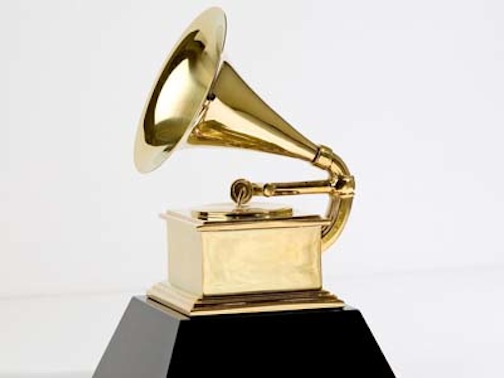

































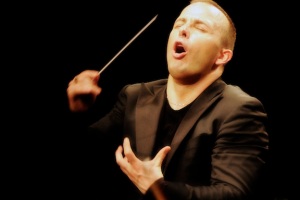




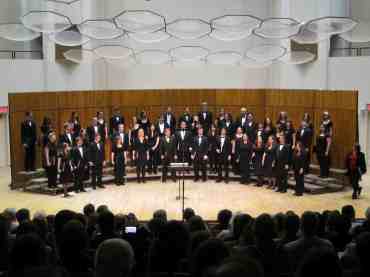
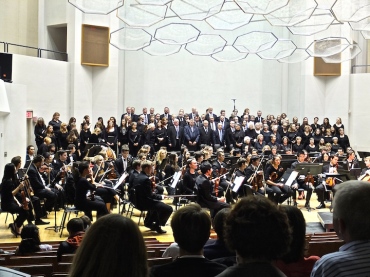
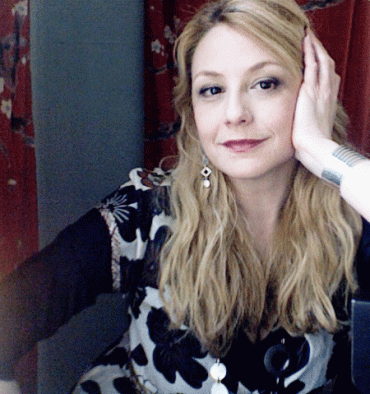
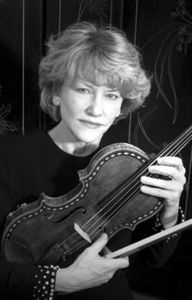
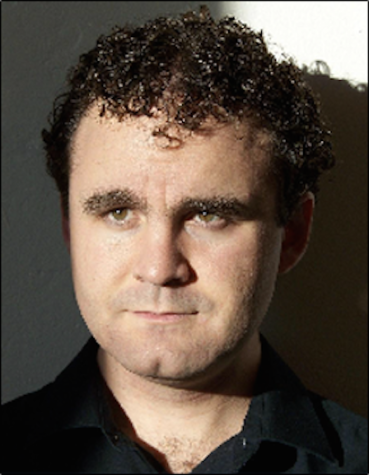
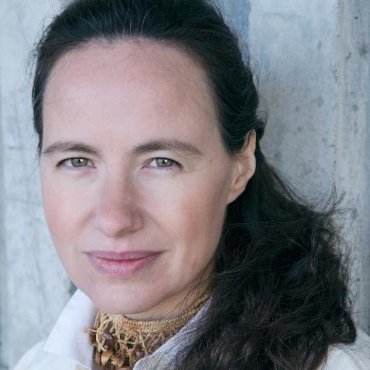
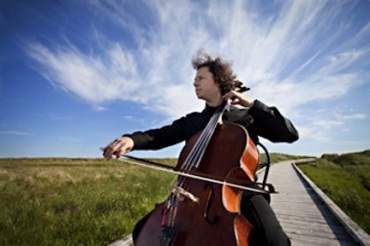
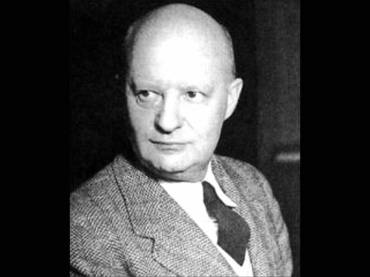
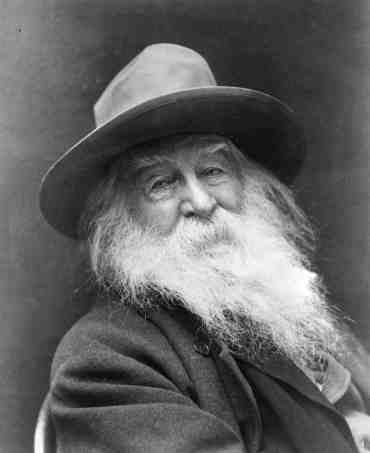
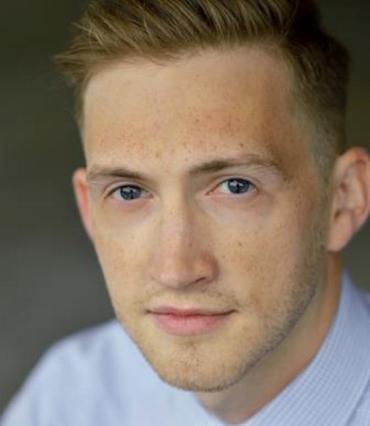
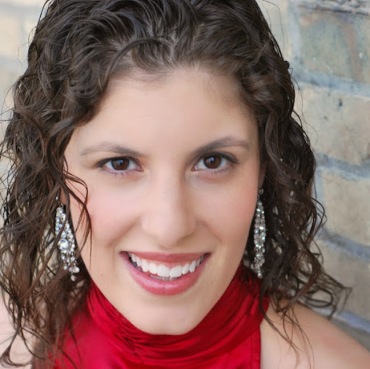
To celebrate Pride month, here are lists of LGBTQ+ composers, performers and musical ensembles
1 Comment
PLEASE HELP THE EAR. IF YOU LIKE A CERTAIN BLOG POST, SPREAD THE WORD. FORWARD A LINK TO IT OR, SHARE IT or TAG IT (not just “Like” it) ON FACEBOOK. Performers can use the extra exposure to draw potential audience members to an event. And you might even attract new readers and subscribers to the blog.
By Jacob Stockinger
June is Pride month.
And this weekend will see Pride marches and celebrations in some major cities including New York City, Chicago, Paris and Rome.
As time passes, scholars are finding out more about the LGBTQ+ composers, performers and musical groups that have been hidden by history.
And some ironies emerge. One can only imagine the response of conservative, right-wing Evangelical Christians who find out that the composer of “Messiah” – George Frideric Handel (below) — was queer, at least according to some researchers.
For most listeners, surprises abound.
Here is a good place to start. It is the very large Wikipedia entry of LGBTQ+ composers and performers, both contemporary and historical. The Ear finds it very informative. It is organized by the kind of musicians they are and the category of their sexual identity. https://en.wikipedia.org/wiki/Category:LGBT_musicians
If you want to be more selective, try these: https://www.classicfm.com/discover-music/greatest-lgbtq-conductors-you-should-know/. They include Marin Alsop (below top) and her teacher and mentor Leonard Bernstein (below bottom).
Here is longer essay that focuses on lesbian conductors as well as gay men and reaches back to the Middle Ages: http://www.glbtqarchive.com/arts/conductors_A.pdf
And here is one with some great photos or pictures of the individuals: https://www.classicfm.com/discover-music/great-classical-composers-who-were-gay/
Finally, here are some of the international music ensembles – with audio samples of their performances — made up of LGBTQ+ singers and instrumentalists, including the Rainbow Symphony of Paris (in the YouTube video at the bottom, performing the beautiful Gloria by the gay French composer Francis Poulenc in a benefit Concert Against Homophobia for UNESCO): https://www.classicfm.com/discover-music/best-lgbtq-classical-music-ensembles/
Inevitably, some readers will react by asking: What difference does the sexual identity of composer or performer make? All that matters, they argue, is the music.
Here is a reply to that specious argument that focuses on Yannick Nézet-Séguin (below), the music director of the Metropolitan Opera, the Philadelphia Orchestra and the City Symphony of Montreal. It appeared in The New York Times: https://www.nytimes.com/2019/01/15/arts/music/yannick-nezet-seguin-met-opera-gay.html
Happy Pride – this month and every day of the year!
Do you have questions, additions or comments?
Leave them below.
The Ear wants to hear.
Share this:
Tags: #BaroqueMusic, #BenefitConcert, #BlogPost, #BlogPosting, #ChamberMusic, #ChicagoIllinois, #ChoralMusic, #FacebookPost, #FacebookPosting, #GayPride, #GeorgeFridericHandel, #Handel'sMessiah, #HumanRights, #InstrumentalMusic, #JacobStockinger, #JesusChrist, #LeonardBernstein, #LGBTQrights, #MarinAlsop, #MetropolitanOpera, #MichelPignoletdeMonteclair, #MiddleAges, #MontrealCanada, #NewMusic, #NewYork, #NewYorkCity, #PhiladelphiaOrchestra, #PhiladelphiaPennsylvania, #PrideMonth, #PrideParade, #RainbowSymphonyOrchestraofParis, #RomeItaly, #SacredMusic, #SoundSamples, #TheEar, #TheMet, #UnitedNations, #VocalMusic, #Wikipediaentry, #YannickNezet-Seguin, #YouTubevideo, addition, Alsop, Arts, audience, Audio, Baroque, Baroque music, beautiful, benefit concert, Bernstein, bisexual, blog, Canada, category, celebration, Chamber music, Chicago, choral music, Christ, Christian, Christianity, cities, city, Classical music, comment, composer, Concert, conductor, conservative, contemporary, day, difference, Early music, emerge, ensemble, entry, Europe, evangelical, Evangelicals, Facebook, Facebook post, Facebook posting, female, Focus, forward, France, French, gay, gay Pride, George Frideric Handel, Gloria, good place, great, groups, Handel, happy', hear, help, hidden, historical, History, homophobia, homosexual, Homosexuality, human rights, imagination, imagine, individual, inevitable, instrumental music, instrumentalist, irony, Italy, Jacob Stockinger, Jesus, June, kind, Leonard Bernstein, lesbian, LGBT, LGBTQ, like, link, list, Madison, major, male, Marguerite Luksik, Marin Alsop, Medieval, men, mentor, Metropolitan Opera, Middle Ages, month, Montreal, Music, Musician, New Music, New York, New York City, NYC, one, opera, oratorio, Orchestra, Paris, pass, Pennsylvania, performer, Philadelphia, Philadelphia Orchestra, photo, Piano, pictures, place, post, posting, pride, Pride month, Pride parade, queer, question, Rainbow Symphony Orchestra of Paris, research, researcher, right-wing, Rome, sample, scared music, scholar, selective, sexual identity, share, sing, singer, start, sub-category, surprise, symphony, tag, Teacher, The Ear, the Met, time, transsexual, UNESCO, United Nations, United States, video, Violin, vocal music, weekend, Wikipedia, Wisconsin, women, Yannick Nézet-Séguin, year, YouTube